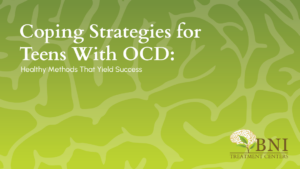A teen that exhibits disruptive, aggressive, or defiant behavior is bound to become persona non grata in the school and social settings. These teens have a propensity to picking fights with others and to disregard social norms, making them unpleasant to be around. These behavior traits are features of conduct disorder, a mental health disorder that emerges in childhood or early adolescence, and which can have a highly negative impact on the teen’s quality of life, as well as the family’s.
Conduct disorder is more prevalent in males, with it affecting an estimated 6-16% of boys, versus 2-9% of girls. It is characterized by persistently hostile behavior as well as even sociopathic traits, such as lacking a sense of conscience or feelings of remorse for the emotional or physical pain they inflict on others. Generally, the younger that the individual displays conduct disorder behaviors the worse their prognosis.
Conduct disorder treatment consists of a multi-systemic approach that requires the involvement of various figures in the teen’s life. In addition to the primary role that parents will play, cooperation from school officials, teachers, coaches, peers, and neighbors. The clinical guidance of a psychotherapist is key to coordinating all aspects of conduct disorder treatment and ongoing therapy is instrumental in making positive strides.
About Conduct Disorder
When the signs of conduct disorder first emerge it can be perplexing to parents and teachers alike. The teen is increasingly disruptive and hostile, ignoring rules and boundaries while expressing little regret for their actions. This can put parents off-balance as they scramble to try to manage these emerging behaviors. It seems that whatever rules are in place, whether at home, school, or in extracurricular activities, the teen exhibits a lack of compliance, often accompanied by no attempt to take responsibility for the actions.
Research has identified the cause of conduct disorder as involving both genetic and environmental components. Some may have parents who themselves struggled with conduct behavior as kids, most having grown out of it. Environmental factors might include social rejection, being bullied, problems deciphering and processing social cues, deficits in brain function in the region that regulates impulse control and emotion, or a history of abuse or trauma. Untreated conduct disorder can evolve into antisocial personality disorder, substance use disorder, or mood disorders.
Signs of Conduct Disorder
There are certain signs that an adolescent may have conduct disorder. Recognizing these signs and seeking treatment for the teen as early as possible will improve the treatment outcome. The signs of conduct disorder include:
- Aggression directed toward people or animals
- Destruction of property, setting fires
- Stealing
- Lying
- Threatening harm to others
- Cruelty toward animals
- Lack of empathy or compassion
- Bullying
- Truancy
- Running away from home
- Physical violence towards others
- Getting in fights, instigating the fights
- Breaking into to people’s cars or homes
- Conning people, deceitful behaviors
- Violating the rights of others
- Problems discerning social cues, socially challenged
Multi-systemic Conduct Disorder Treatment
Treatment strategies will include various components. Parents should have the teen evaluated by a psychiatrist or psychotherapist who can initiate multiple therapeutic interventions. In some cases, medication will be included in the treatment plan, usually only if there is a co-occurring mental health disorder such as depression, ADHD, or anxiety. Parents must set up consistent rules and boundaries that must be enforced without arguing, yelling, or getting into a power struggle with the teen. Parents should coordinate efforts with all adults who have contact with the teen so that everyone is on the same page, articulating expectations, setting rules and boundaries, and consistently enforcing them.
Therapies used to treat conduct disorder may include:
- Multi-systemic therapy
- Cognitive behavioral therapy
- Family therapy
Parents should strive to resist taking their teen’s acting out behaviors personally, although this can be difficult to accomplish. Cultivating a safe, calm home environment, being open and available to talk with the teen, and show genuine support for the teen is essential for successful conduct disorder treatment.
Residential Treatment When Conduct Disorder Escalates
If the teen is not responsive to therapeutic efforts and continues to spiral out of control, it is appropriate to consider a higher level of care as a residential treatment program provides. The teen may have become more violent, inflicted serious harm on people or animals, or has threatened suicide, all warning signs that the teen needs more intensive therapy.
A residential treatment setting offers a much more targeted and intensive treatment program for conduct disorder. These programs may also provide detox services if there is a co-occurring substance use disorder present.
BNI Treatment Centers is a Residential Mental Health Center for Teens
BNI Treatment Centers provides leading psychiatric interventions in a residential setting for teens aged 12-17 in Los Angeles, CA. BNI Treatment offers a higher standard of care than what is available through outpatient efforts, allowing the teen with conduct disorder to spend quality time focusing on treatment and wellness. The expert psychiatric staff at BNI Treatment will utilize various evidence-based treatment modalities along with adjunctive activities that augment the effects of psychotherapy for a balance, integrative approach to conduct disorder treatment. For more information about our program, please contact BNI Treatment Centers today at (888) 522-1504.



